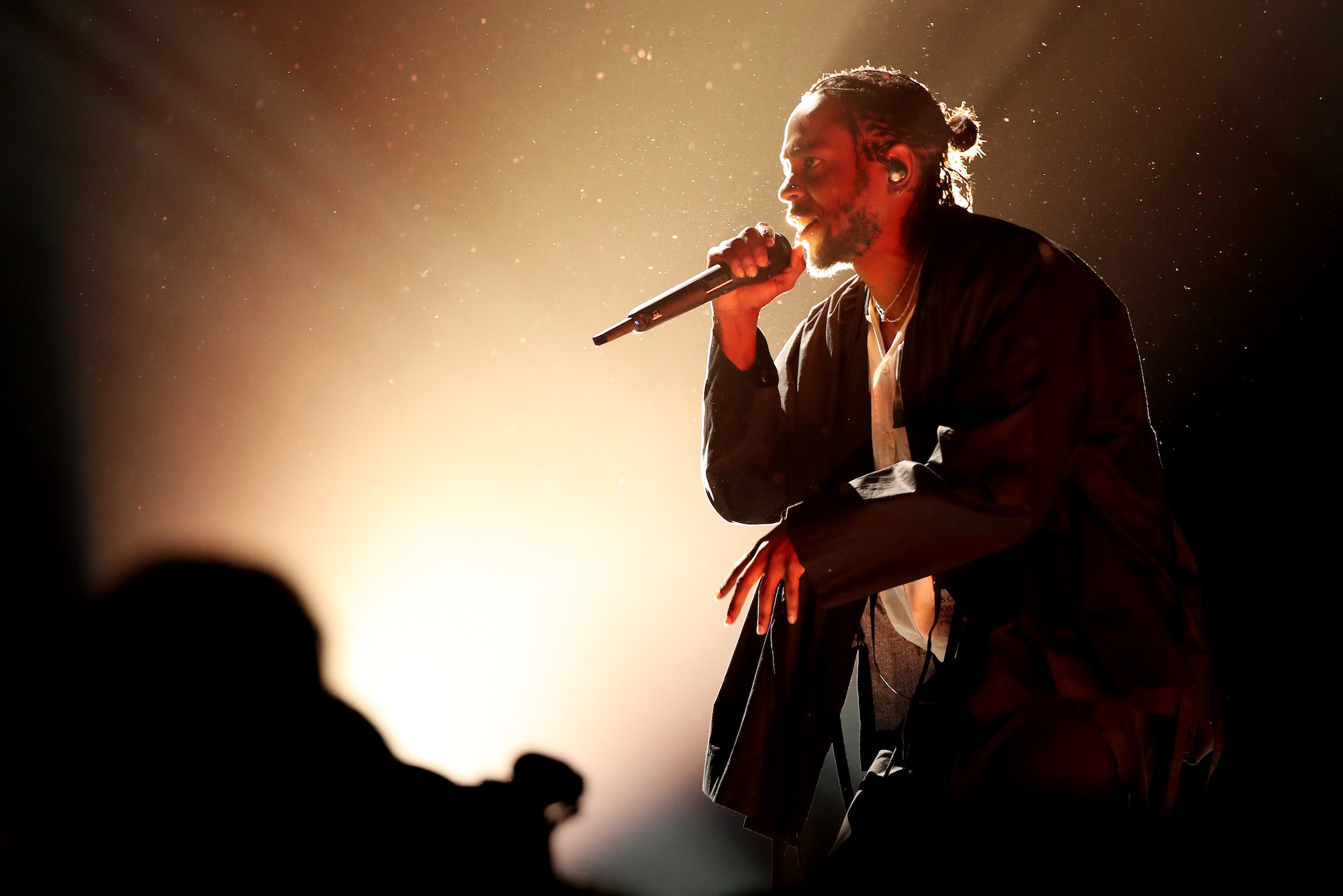Kendrick Lamar Breaks Down Why He Stopped a Show to Call Out a Fan
Kendrick Lamar is a multitalented writer, singer, and record producer. He has been a major presence in the music industry for nearly 10 years and has worked with some of the biggest names in music, including Snoop Dogg and Busta Rhymes. Lamar had a difficult childhood, but he has been able to turn his experiences into something positive by always remaining an advocate for the underprivileged. He is never afraid to speak out for his community, even when it could potentially cause some backlash for him — such as the case of one of his concerts, where he called out a fan for singing a racially-charged phrase.

Who is Kendrick Lamar?
Kendrick Lamar was born in California in 1987. According to Biography, he was raised in an underprivileged area of Compton and was frequently in contact with gang members — although he always managed to avoid getting in trouble himself. The circumstances of his birth didn’t bring Lamar down, rather, they shaped him into a creative genius who was able to turn the often-disturbing realities that he was confronted with into powerful lyrics.
As a teenager, Lamar turned his interest in poetry and writing into a budding rap career, and before he was in his twenties, he had landed a recording contract. Lamar released his debut album in 2012, and it garnered a great deal of interest. The young artist began performing on late-night talk shows and selling out concerts all over the country. In spite of the fame that he achieved, Lamar remained true to himself and continued singing about the issues and subjects that are of importance to him.
What is Kendrick Lamar best known for?
Kendrick Lamar’s third album, To Pimp a Butterfly, was released in 2015, and became one of his biggest successes to date. Rather than slowing down, Lamar continued cranking out hits, releasing another acclaimed album, Damn, in 2017. In honor of the hit album, Lamar was awarded the Pulitzer Prize for Music. Most artists would have decided to slow down at that point and bask in the glow of their history-making win. However, Lamar admitted that winning the Pulitzer Prize only motivated him to work harder: “the minute I hear good news, it just motivates me to do more. I don’t want to get complacent.”
Fans also know Lamar for curating the soundtrack for the 2018 Marvel Studios film, Black Panther. The artist wrote a staggering fourteen original songs for the soundtrack, and he went on to win several major awards for the high-profile project.
Kendrick Lamar is probably as well known for his work in activism as he is for his popular music. The artist has never hesitated to call out inequality, and in light of the recent protests around the world, his music has become even more relevant. Lamar’s song “Alright” has become particularly popular and remains widely used as a protest anthem at marches and gatherings, as reported by Complex.
Why did Kendrick Lamar call out a fan at one of his shows?
As for Lamar himself, he remains as dedicated to social justice causes as ever before. In fact, during one of his concerts in May 2018, Lamar had pulled a fan on stage with him to sing along to his song “m.A.A.d city.” Instead of self-censoring, the white fan sang the full lyrics of the song, including a racial slur. Lamar promptly stopped the show and addressed the issue with the fan, making it a teachable moment.
In an interview with Vanity Fair not long after the incident took place, Lamar revealed his reasons for stopping the show: “Let me put it to you in its simplest form. I’ve been on this earth for 30 years, and there’s been so many things a Caucasian person said I couldn’t do. Get good credit. Buy a house in an urban city. So many things—’you can’t do that’—whether it’s from afar or close up. So if I say this is my word, let me have this one word, please let me have that word.”
It seems as though his fans agreed with him: Hollywood Life reports, the fan on stage was booed at the concert, while Lamar was able to finish the show, receiving thunderous applause at the end of his set.


